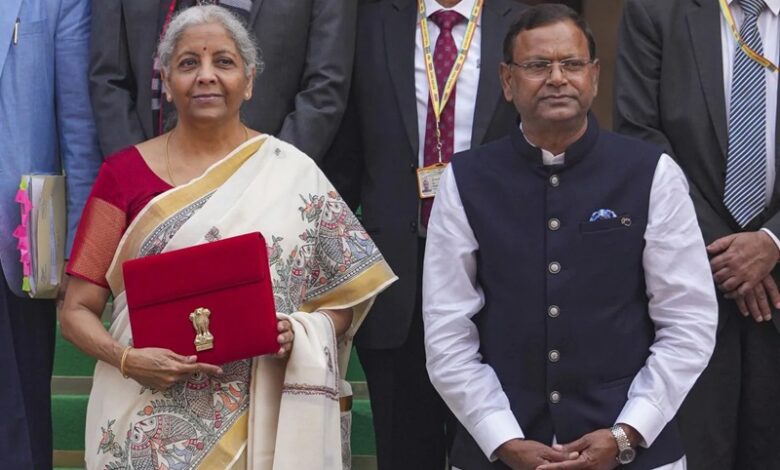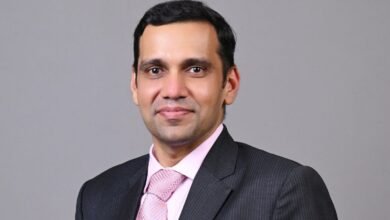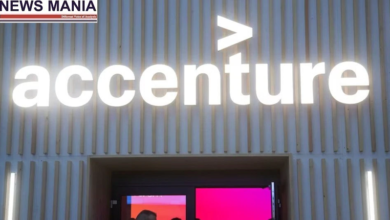Tech in Focus With Framework for GCCs, New ‘Fund of Funds’ for startups, CoE for AI
News Mania Desk / Piyal Chatterjee / 1st February 2025

New and evolving technologies took center stage in the Union Budget, with Finance Minister Nirmala Sitharaman unveiling a national framework for Global Capability Centres (GCCs), a Rs 500-crore Centre of Excellence in AI for education, and announced that a deep tech ‘Fund of Funds’ will be investigated to stimulate the next generation of startups.
A new Fund of Funds, featuring an expanded scope and a fresh infusion of an additional Rs 10,000 crore, is also in the works. A national framework will be developed to guide states in fostering Global Capability Centres within emerging Tier-2 cities. This will propose actions to improve talent and infrastructure accessibility, develop byelaw reforms, and establish collaboration mechanisms with the industry.
“I had announced three Centres of Excellence in Artificial Intelligence for agriculture, health, and sustainable cities in 2023. Now a Centre of Excellence in Artificial Intelligence for education will be set up with a total outlay of Rs 500 crore,” Sitharaman said.
Startups have a reason for cheer also as a new ‘Fund of Funds’ with expanded scope and a fresh contribution of additional Rs 10,000 crore will be set up.
“The Alternate Investment Funds (AIFs) for startups have received commitments of more than Rs 91,000 crore. These are supported by the Fund of Funds set up with a government contribution of Rs 10,000 crore. Now, a new fund of funds, with expanded scope and a fresh contribution of another Rs 10,000 crore will be set up,” she said.
Gopal Jain, Managing Partner at Gaja Capital, remarked that the launch of a new Fund of Funds for AIFs and a Center of Excellence for AI in Education are both “encouraging measures” aimed at promoting a knowledge-based economy. To enhance capital access, the credit guarantee coverage for startups will increase from Rs 10 crore to 20 crore, with the guarantee fee reduced to 1 percent for loans in 27 priority sectors essential for Atmanirbhar Bharat.
Bruce Keith, Co-founder CEO of InvestorAi, thinks that the announcement regarding deep tech funds, although details are pending, should be considered through the ‘DeepSeek’ perspective of what can be achieved with modest capital when given to nimble and innovative teams.
“We expect the venture capital ecosystem to bring velocity and momentum into funding these enterprises,” Keith said.
It is pertinent to mention here that the India GCC landscape has been progressing over the past five years and the total number of such centres have risen to over 1,700 in FY24 with over 2,975 centres.
Jaspreet Singh, Partner and GCC Industry Leader, Grant Thornton Bharat said that the Budget’s focus on expanding talent availability and infrastructure in Tier-2 cities marks a significant step in strengthening India’s Global Capability Centre ecosystem.
“By unlocking access to a wider talent pool, including professionals who prefer to stay in their hometowns, this initiative will enhance workforce stability and retention. Improved infrastructure will further enable seamless operations, making Tier-2 cities attractive destinations for high-value global work,” Singh said.
As GCCs evolve into strategic hubs for innovation and technology, the expansion will drive inclusive growth, reduce regional disparities, and position India as a global leader in digital and business services, Singh said and noted that a well-distributed GCC network will ensure long-term resilience, scalability, and global competitiveness.
“The creation of the Deep Tech Fund of Funds will empower India’s deep-tech entrepreneurship, and fuel India’s global competitiveness in the AI race. With access to capital being a persistent challenge, the policy measures will increasing credit guarantee coverage for startups from Rs. 10 crore to Rs. 20 crore, enhancing access to capital,” said Prabhu Ram, VP – Industry Research Group (IRG), CyberMedia Research.
“India currently has the smallest talent demand-supply gap and is on track to achieve a skilled talent surplus by 2030. The expansion of IITs and the establishment of AI Centers of Excellence (CoEs) will strengthen India’s talent pool in emerging technologies, particularly AI. The PM Research Fellowship Scheme will also support innovation by offering 10,000 fellowships over the next five years at prestigious institutions like IITs, NITs, and IISc,” he added.






